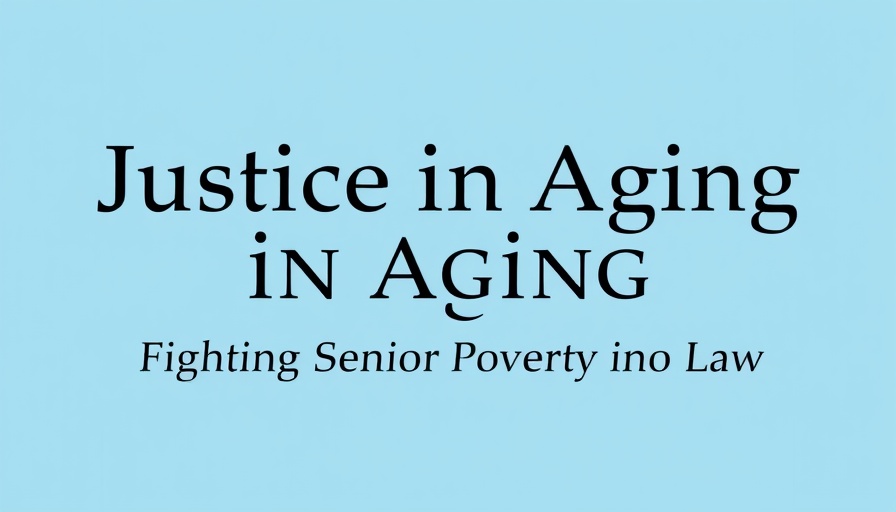
Redefining the Narrative of Aging
We often hear the phrase "aging gracefully," but what if aging is not just about grace? What if it is about redefining our lives and proving that age is merely a number? As numerous studies have highlighted, many seniors are now standing against age-related stereotypes, becoming examples of resilience, vitality, and continuous personal growth.
Understanding 'Super Agers'
Among the brightest examples of this transformation are the so-called "super agers." These are individuals aged 80 and above who demonstrate cognitive and physical capabilities akin to those of their much younger counterparts. Research from institutions like the Harvard-affiliated Massachusetts General Hospital and Northwestern University shows that super agers exhibit unique brain structures, including a thicker anterior cingulate, suggesting that effective aging is achievable. These individuals actively participate in mentally and socially enriching activities, focusing on lifelong learning—a theme echoed throughout studies on aging.
Life Lessons from Lifelong Learners
Seniors like Marcia, a 75-year-old art history graduate, showcase that lifelong learning is not just a concept, but a way of life. Her determination encourages younger generations to pursue their passions ceaselessly, reinforcing the idea that it is never too late to learn something new. Likewise, historical figures such as Marie Curie and Leonardo da Vinci embody the potential for continuous intellectual growth, reminding us that curiosity knows no age bounds.
Breaking Barriers: Health and Fitness
Another inspiring element is the commitment of seniors to health and fitness. Harold, an 82-year-old marathon runner, and Gwen McFarlan, who at 89 is aiming for her 26th marathon, exemplify that fitness can thrive at any age. This active lifestyle isn't just inspirational but backed by evidence that suggests regular exercise contributes to cognitive and emotional health, giving credence to the narrative that older adults can indeed lead vibrant, healthy lives.
Purposeful Engagement: Giving Back
Retirement often signifies a new beginning rather than an end. Take Eleanor, a 68-year-old who, after a successful teaching career, launched a community tutoring program for underserved children. Her story reflects the essence of purposeful engagement—showing that life after work can still hold deep meaning and contributions to society. This feeds into the narrative that a fulfilling retirement is one where individuals continue to find ways to make a difference, advocating lifelong involvement in community service.
Future Implications and Opportunities
The societal shift towards recognizing the capabilities of seniors leads us to a hopeful future, wherein older adults are celebrated for their contributions rather than marginalized. Understanding the mechanics behind longevity and resilience can inspire policy adjustments to provide better support for engaging older populations. With more awareness, we can foster environments that encourage super agers, ensuring that they not only thrive but also pave the way for future generations to redefine aging.
Empowering Seniors: Steps Forward
To all the seniors out there, consider how your daily habits and mindsets contribute to your overall vitality. Engaging with socially supportive communities, embracing lifelong learning, and actively participating in health and wellness activities are foundational steps toward redefining not just your life but the broader narrative of aging. As researchers continue to uncover protective factors that support healthy aging, it's clear that the spirit to live fully can enhance longevity and quality of life.
Ultimately, the journey of aging is one of choice. Will you choose curiosity, community, and contributions? The power to redefine what it means to age lies within each of us.
 Add Row
Add Row  Add
Add 


 Add Row
Add Row  Add
Add 

Write A Comment